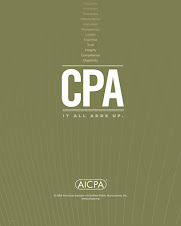Year-end tax planning is especially challenging this year because of uncertainty over whether Congress will enact sweeping tax reform that could have a major impact in 2012 and beyond. And even if there's no major tax legislation in the immediate future, Congress next year still will have to grapple with a host of thorny issues, such as whether to once again “patch” the alternative minimum tax (e.g., to avoid a drastic drop in post-2011 exemption amounts), and what to do about the post-2012 expiration of the Bush-era income tax cuts (including the current rate schedules, and low tax rates for long-term capital gains and qualified dividends), and the expiration of favorable estate and gift rules for estates of decedents dying, gifts made, or generation-skipping transfers made after Dec. 31, 2012.
Regardless of what Congress does late this year or early the next, there are solid tax savings to be realized by taking advantage of tax breaks that are on the books for 2011 but may be gone next year unless they are extended by Congress. These include, for individuals: the option to deduct state and local sales and use taxes instead of state and local income taxes; the above-the-line deduction for qualified higher education expenses; and tax-free distributions by those age 70- 1/2 or older from IRAs for charitable purposes. For businesses, tax breaks that are available through the end of this year but won't be around next year unless Congress acts include: 100% bonus first-year depreciation for most new machinery, equipment and software; an extraordinarily high $500,000 expensing limitation (and within that dollar limit, $250,000 of expensing for qualified real property); and the research tax credit.

Tuesday, December 20, 2011
Subscribe to:
Post Comments (Atom)


No comments:
Post a Comment